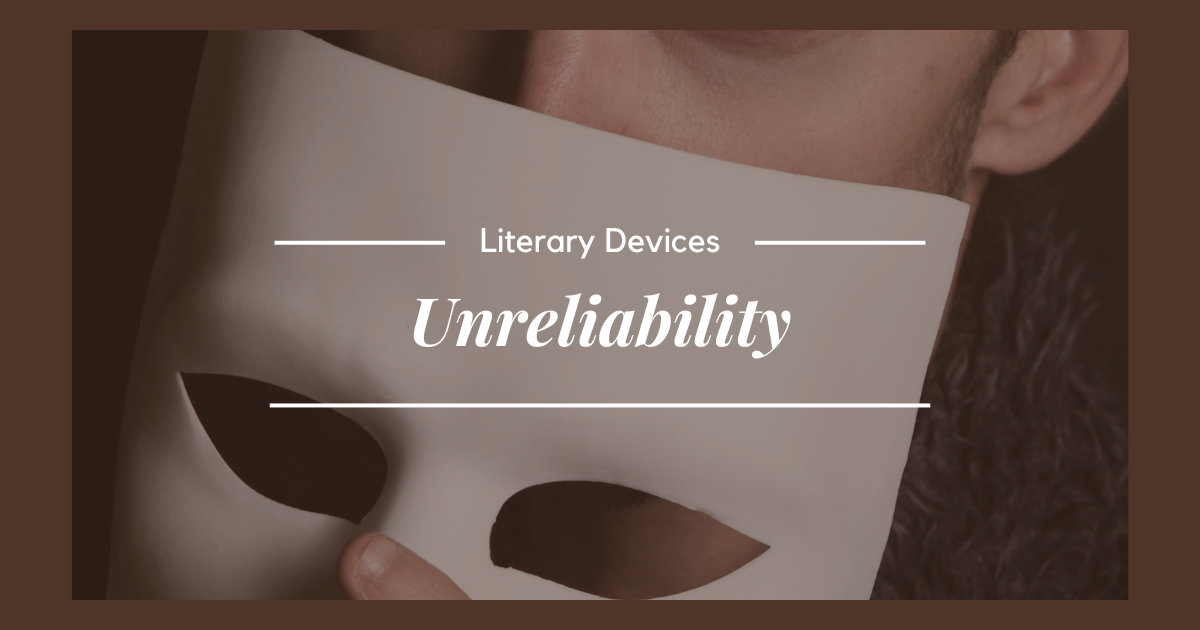Have you ever watched an episode in a sitcom where the group of characters can’t agree on how something played out, so they each go around sharing their version of events, with the comedic result being that none of them remember it the exact same way?
Welcome to the unreliable narrator.
What’s an unreliable narrator?
Not to be confused with an unlikeable main character, the unreliable narrator is one whose credibility is compromised. Whether due to intentional deceit, mental instability, personal bias, or lack of knowledge, their version of events is…suspect. You don’t trust them.
This technique adds layers of complexity and intrigue, challenging readers to discern the truth. It leaves you trying to piece together the real story from the narrator’s fragmented or misleading account.
While of course unreliable narrators serve mysteries really well, considering what they add to the suspense, there are so many creative ways to use this storytelling technique. They can add to the creeping tension of horror, they can add depth and conflict to romance, and they can be used to explore complex characters or themes in literary fiction.
Effective unreliable narrators leave hints throughout the story.
Subtle Clues
Like a good mystery that all comes together well in the end, the perfect unreliable narrator is one who hints at their unreliability through inconsistencies, contradictions, and clues scattered throughout the narrative.
Character Depth
The unreliability should feel like a natural extension of their character. For example, in Gone Girl by Gillian Flynn, Amy’s diary entries and Nick’s perspective create a fascinating interplay of truth and deception, reflecting their twisted relationship more than objective truth.
Plot Twists
Sometimes you don’t realize the character is unreliable until, BAM, it hits you right in the face. I would share an example here, as I have one in mind, but it would be a partial spoiler.
Ineffective unreliable narrators feel heavy-handed.
Too Obvious
When a narrator’s unreliability is too overt from the start, it can diminish the intrigue and suspense. Readers quickly catch on and the element of surprise is lost.
Lack of Resolution
If the story fails to provide sufficient clues or a satisfying resolution, readers can feel frustrated and cheated. Ambiguity is a double-edged sword; too much can leave readers confused and disengaged. For example, a plot that relies solely on the shock value of an unreliable narrator without deeper narrative substance can fall flat.
Inconsistent Characterization
Like I mentioned above, the unreliability needs to make sense for the character. Inconsistencies that don’t align with their established traits can break immersion and make the narrative feel contrived. If a character suddenly behaves in an unbelievable way just to serve the plot twist, it undermines the story’s integrity.
Unreliable narrators can also be lighthearted or funny.
These aren’t exclusive to dark, mysterious, or serious works. By distorting the truth, misunderstanding situations, or presenting a skewed perspective, unreliable narrators can create humorous situations and highlight the absurdities of life.
Narrators who are oblivious to their own flaws or who delude themselves about their capabilities can be a rich source of comedy. The contrast between their self-perception and reality can create situational irony and comedic tension. Or their over-the-top descriptions and implausible scenarios can make readers laugh while recognizing the narrator’s unreliable nature.
It’s an interesting break from standard main characters.
If you’re looking to try something new, find an unreliable narrator. They’re basically the opposite of a self-insert, and often fall under the “morally gray” umbrella.
Click here for some popular Goodreads books shelved under “unreliable narrator.”
I would love to have you around! Subscribe below.
Check out some of my other recent blogs:







